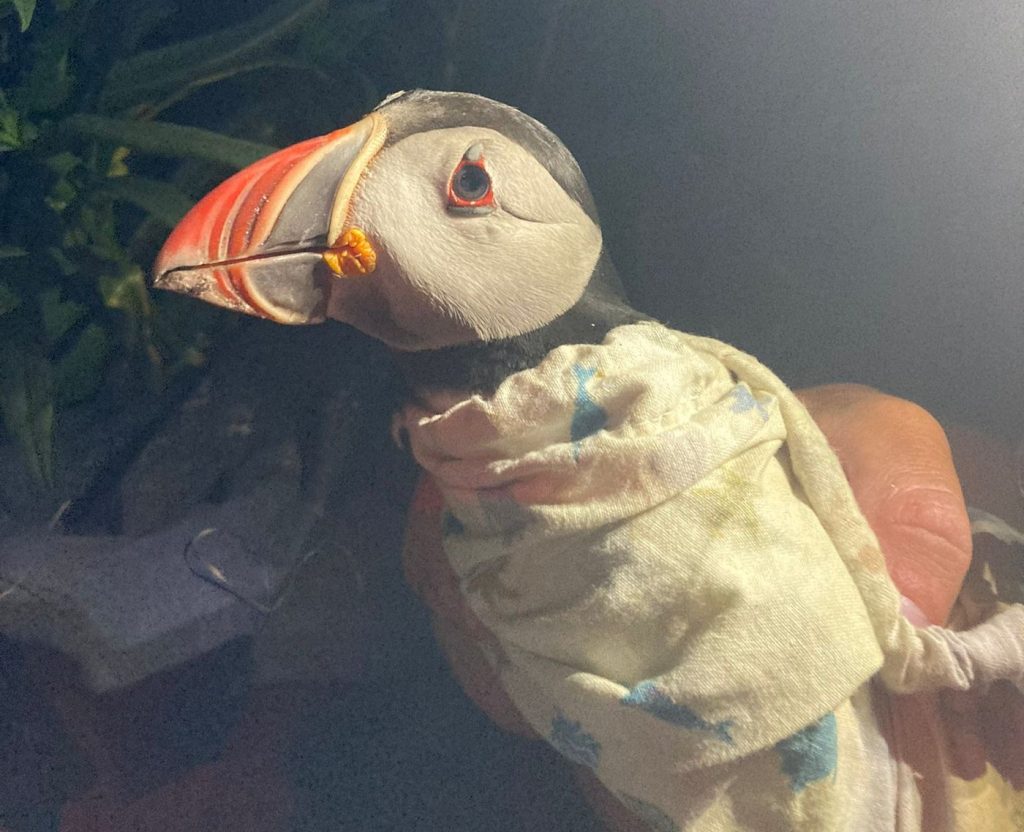In Fredericton, a remarkable discovery was made by Daniel Oliker, a graduate student from the University of New Brunswick, who encountered a 33-year-old Atlantic puffin named JG18 on Machias Seal Island. This puffin is notable not only for its age, which surpasses Oliker's own by a decade, but also for being a symbol of resilience and experience in the natural world. Oliker, who is studying the ecology of Atlantic puffins, found the bird adorned with a faded plastic band that dates back to 1992, marking it as one of the oldest known puffins in the region.
Machias Seal Island is located approximately 19 kilometers southwest of Grand Manan Island, at the mouth of the Bay of Fundy. This flat, treeless sanctuary hosts around 8,600 breeding pairs of puffins, making it a vital habitat for these seabirds. After a fellow researcher spotted the old puffin and marked its location based on the band, Oliker and his team set out around midnight to search the burrows where puffins rest after foraging at sea.
Upon inspecting several burrows, Oliker identified the right puffin by feeling for its unique bands. The encounter was gentle, as the aged bird did not resist being pulled from its nest. In an effort to modernize the identification system, the team replaced the old plastic band with a new metal one, rebranding the puffin as JG18, although its gender remains unknown. Oliker expressed his excitement, noting the significance of holding such an ancient creature, especially considering that most puffins typically live only into their mid-20s.
The presence of a chick alongside JG18 was especially encouraging given the challenges puffins face this season due to a lack of food. Oliker remarked on the positive aspect of the chick's size, even amidst reports of other puffins struggling to produce live offspring and experiencing high mortality rates among their young. His belief that JG18's longevity has endowed it with the knowledge necessary to successfully raise offspring is backed by the fact that puffins usually begin reproducing around the age of four or five. Therefore, it is likely that JG18 has raised more than 25 chicks throughout its life.
However, researchers have raised concerns regarding the impact of climate change on Atlantic puffins. Nick Lund, a network manager for Maine Audubon, highlighted that the Gulf of Maine—where these puffins breed—is experiencing rapid warming. The shifting temperatures are causing traditional fish species, which puffins rely on for food, to migrate away from the area, posing a significant threat to their survival and raising uncertainty about their ability to adapt to new species entering these warming waters.
The International Union for Conservation of Nature categorizes puffins as "vulnerable," indicating they are at high risk of extinction in the wild. The discovery of long-lived puffins like JG18 is crucial for understanding their longevity and overall survival, as noted by marine biology professor Heather Major. A recent study in the journal Ecology and Evolution indicated that adult survival among puffins has declined, emphasizing the need to closely monitor populations as they face increasingly warm conditions.
Looking ahead, Oliker hopes to continue observing JG18 and to track its life over the coming years. As the bird is now officially entered into the database under its new band number, the researchers are contemplating a fitting name for the remarkable puffin. The potential to witness JG18 thrive in the future serves as a reminder of the resilience of wildlife in the face of changing environmental conditions.











